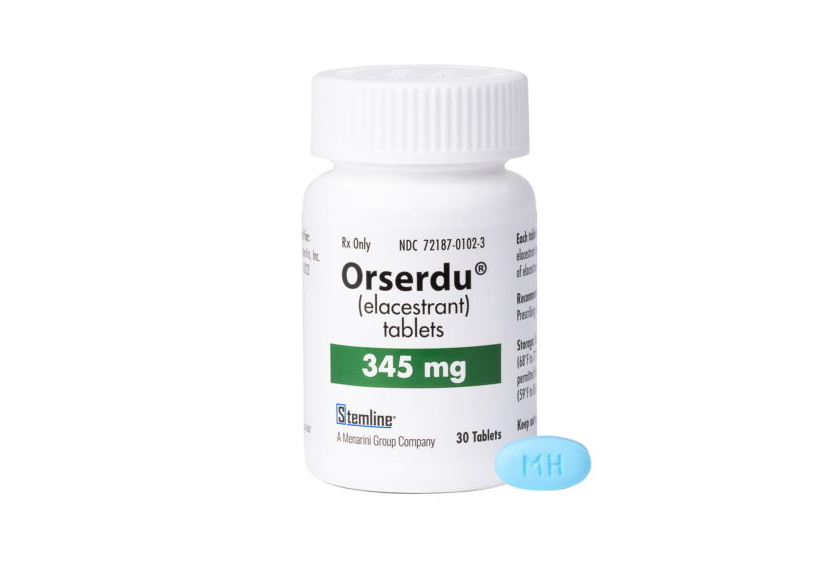Xeloda () vs Orserdu (elacestrant)
Xeloda () vs Orserdu (elacestrant)
Xeloda (capecitabine) is an oral chemotherapy drug that is typically used to treat breast and colorectal cancers by interfering with DNA production, which slows or stops the growth of cancer cells. Orserdu (elacestrant) is a selective estrogen receptor degrader (SERD) that is used for the treatment of estrogen receptor-positive (ER+) breast cancer, often in postmenopausal women, by targeting and degrading estrogen receptors on cancer cells. When deciding between Xeloda and Orserdu, it is crucial to consider the specific type of cancer, hormone receptor status, previous treatments, and the patient's overall health, as these medications have different mechanisms of action and are used for different subtypes and stages of breast cancer.
Difference between Xeloda and Orserdu
| Metric | Xeloda () | Orserdu (elacestrant) |
|---|---|---|
| Generic name | Capecitabine | Elacestrant |
| Indications | Colorectal cancer, metastatic breast cancer | ER+/HER2- advanced or metastatic breast cancer |
| Mechanism of action | Antimetabolite, thymidine phosphorylase activation | Estrogen receptor antagonist |
| Brand names | Xeloda | Orserdu |
| Administrative route | Oral | Oral |
| Side effects | Diarrhea, hand-foot syndrome, nausea | Not fully established, clinical trials ongoing |
| Contraindications | Dihydropyrimidine dehydrogenase (DPD) deficiency | Not fully established, clinical trials ongoing |
| Drug class | Antimetabolite | Selective estrogen receptor degrader (SERD) |
| Manufacturer | Roche | Radiopharm Theranostics |
Efficacy
Xeloda (Capecitabine) Efficacy in Breast Cancer
Xeloda, also known by its generic name capecitabine, is an oral chemotherapy medication that is used to treat breast cancer. It is a prodrug that is metabolized in the body to 5-fluorouracil (5-FU), a substance that interferes with DNA synthesis and slows the growth of cancer cells. Xeloda is specifically indicated for the treatment of patients with metastatic breast cancer, particularly after failure of anthracycline-containing chemotherapy. It is also used in combination with docetaxel after the failure of anthracycline-containing chemotherapy regimens. The efficacy of Xeloda in breast cancer has been demonstrated in several clinical trials, where it has been shown to prolong progression-free survival and, in some cases, overall survival in patients with metastatic disease.
In the pivotal clinical trials that led to the approval of Xeloda, the response rates in patients with metastatic breast cancer ranged from 20% to 30%, depending on the setting and whether it was used as monotherapy or in combination with other chemotherapeutic agents. The addition of Xeloda to docetaxel has been shown to provide a significant improvement in overall survival compared to docetaxel alone in patients with metastatic breast cancer who have previously received anthracycline chemotherapy.
Orserdu (Elacestrant) Efficacy in Breast Cancer
Orserdu, with the active ingredient elacestrant, is a novel oral selective estrogen receptor degrader (SERD) that is being investigated for the treatment of estrogen receptor-positive (ER+) breast cancer. Elacestrant is designed to bind to the estrogen receptor and degrade it, thereby inhibiting the receptor's activity and the growth of breast cancer cells that depend on estrogen signals for proliferation. While Orserdu is not yet approved for clinical use as of the knowledge cutoff in 2023, it has shown promise in clinical trials for the treatment of ER+ advanced or metastatic breast cancer.
Clinical studies evaluating the efficacy of Orserdu in breast cancer are ongoing. Preliminary results from phase 2 trials have suggested that elacestrant may have significant activity in patients with ER+ advanced breast cancer, including those who have previously received endocrine therapy and CDK4/6 inhibitors. The trials aim to establish the efficacy of Orserdu in terms of progression-free survival, overall survival, and objective response rate. As research continues, Orserdu holds the potential to become an important treatment option for patients with ER+ breast cancer, particularly for those who have progressed on other endocrine therapies.
Regulatory Agency Approvals
Xeloda
-
European Medical Agency (EMA), European Union

-
Food and Drug Administration (FDA), USA

Orserdu
-
Food and Drug Administration (FDA), USA

Access Xeloda or Orserdu today
If Xeloda or Orserdu are not approved or available in your country (e.g. due to supply issues), you can access them via Everyone.org.
How it works

Make an enquiry
Choose the medicine you want to buy, answer a couple of questions, and upload your prescription to speed things up. We’ll get back to you within 24 hours.


Make an enquiry
Choose the medicine you want to buy, answer a couple of questions, and upload your prescription to speed things up. We’ll get back to you within 24 hours.


Breeze through the paperwork
We'll guide you through the required documents for importing unapproved medicine, ensuring you have all the necessary information.


Get a personalized quote
We’ll prepare a quote for you, including medicine costs and any shipping, administrative, or import fees that may apply.


Receive your medicine
Accept the quote and we’ll handle the rest - sourcing and safely delivering your medicine.

Some text on this page has been automatically generated. Speak to your physician before you start a new treatment or medication.
Let's talk
If you have any questions, call us or send us a message through WhatsApp or email:
Contact us




